So you eat meat, and you want to get it from a farm you know and trust. Don’t we all! If you are considering buying meat direct from a local farmer for the first time, you may have some questions and uncertainties.
When I was growing up, my parents bought meat from Safeway and other grocery chains. There was meat at most meals, at least twice a day. We ate a lot of chicken, some lean beef and pork. I never saw any of those animals alive. I was aware that there were ethical issues with animal welfare in the meat industry, but I tried not to think about it.
As I became more involved in the local food and farming culture, I began to eat meat raised by people I knew. I ate animals that I had met, and I loved it because I knew they had lived healthy, happy lives. That is a gift that many people do not have in their lives, but luckily, with the local food movement growing yearly, ethical meat is more accessible than ever.
I want to clear up your worries, answer some questions, and help you transition towards eating farm-raised meat. My partner and I run a pig farm, selling primarily at farmer’s markets, so I have strong feelings and a lot of insight about local meat.
Buying by the Share Versus the Cut
In the grocery store, all the meat you can buy is sold “by the cut,” that is, butchered into individual portions of animal, like rib steaks and tenderloin. When you are buying meat directly from a farmer, you may have the option to buy meat “by the share” instead.
A meat share means buying a whole, half, or quarter animal all at once. A butcher will cut your share any way you would like, so that you still end up with country style ribs and bacon, but those cuts are not resellable. All that meat is yours, so you’d better have the freezer space!
Benefits Of Buying Meat By The Share
There are some big advantages to buying meat by the share. It is almost always cheaper per pound to buy a share than the same meat by the cut, even though it is a large one-time purchase.
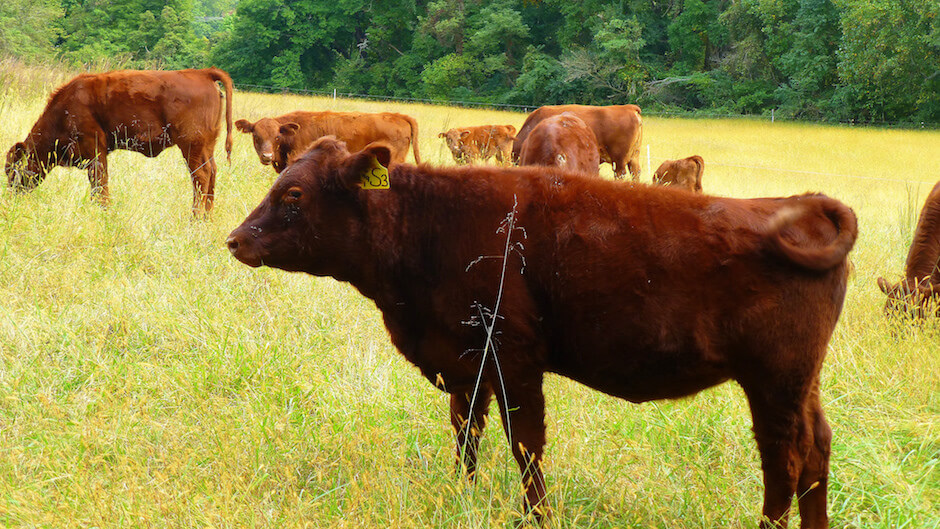
Also, all the expense is upfront, easy to budget for and you know exactly how much money you will be spending. (Around a thousand dollars for a whole pig, closer to two thousand for a whole cow, in case you were wondering.)
Challenges Of Buying Meat By The Share
One of the challenges of buying meat by the share is that you will end up with some parts of the animal that you might not choose to buy, like trotters, liver, and tongue. This varies widely depending on your butcher.
Ask the farmer to put you in touch with their butcher if you have questions about what they include in their shares, and what they scrap. Maybe this is an opportunity to develop a taste for more unusual cuts of meat!
Another problem for many people is the sheer quantity of meat. Hogs are sold by the half and whole, and a whole pig is around 160 lbs. worth of cut meat. Beef, available by the whole, half, or quarter share, weighs out at around 500 lbs. of meat per animal. That’s a lot of food, although consider that the average American eats more than 200 lbs. of meat per year.
Related Post: Biodynamic Farming: What It Is and Why Do It
Many families buy a meat share with another household, or even two or three. Then everyone shares the benefits of reduced cost and high-quality meat, without the hassle of storing almost 500 lbs. of cow.
In some states, including Washington, the licensing for selling meat by the share is different than by the cut. All cut meat, everywhere in the country, has to be certified by the USDA. Meat by the share, on the other hand, is sometimes regulated only by the state—so it’s less expensive.
Some farms only sell meat by the share, and many farms do both kinds of orders.
Trusting the Quality of Meat
It’s easy to assume that just because a farm is small and local, it must have good practices for animal welfare and sustainability. Let’s be honest, that’s not necessarily true. While we are all on the side of small farmers, it would be foolish to assume that size or locality is a guarantee of quality.
The key difference, however, between buying from local farms, as opposed to the industry, is that you can talk directly to a local farmer.
Industrial farms and the industrial food system rely on advertising, image, and certifications to prove the quality and safety of their product. These labels can be misleading.
The meat industry intentionally confuses and misdirects consumers. Claims like “pastured” and “natural” are not evaluated by the FDA and are not binding. Anyone can put them on a product and meat with these labels is not any different than unlabelled meat.
Certifications like “organic” are closely regulated by the government, but many people do not realize that even “organic” producers may use toxic organic-approved pesticides like copper sulfate, and that third-party certifications are only as reliable as the group that issues them.
You should only buy meat from an operation that highly values animal welfare, pastures their animals whenever possible, and gives them high-quality feed. Some big farms do this—but how can you know for sure? The best thing about buying from a local farms is that you can get to know your farmer, visit their farm, and see for yourself.
How To Meet A Farmer
Farmers are a notoriously reclusive and shy breed, but if you take a pair of binoculars to your local farmer’s market, you are sure to spot one or two.
If you don’t have a local market, or if your market doesn’t have a meat farmer, you might have to do more sleuthing. Ask one of the veggie farmers, or any kind of farmer you can get your hands on—the community is small. Or call your local extension office—they work with local farms and will know who sells meat commercially.
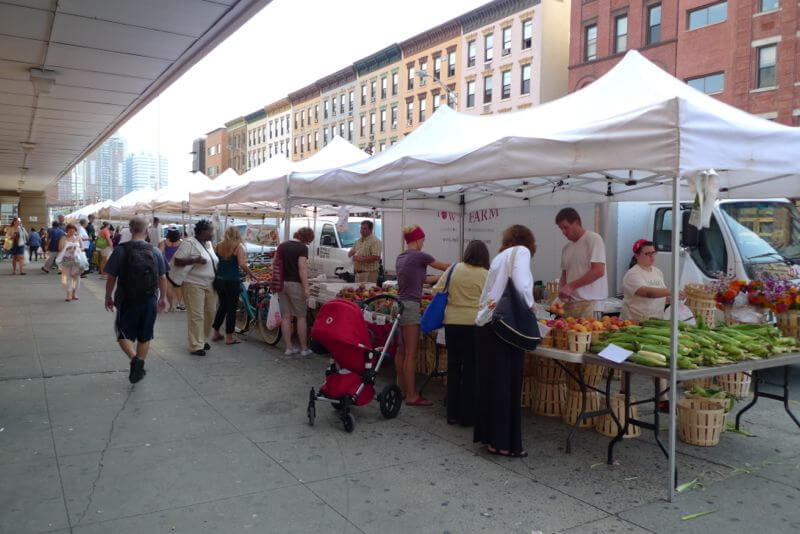
When all else fails, try the internet. New online platforms like CrowdCow and Barn2Door connect consumers directly to farms. Meeting online is convenient for both farmers and consumers, but the farmers get a lower premium on their meat, since the web host takes a cut.
Also, most farms have not made the jump to these platforms, so you will be missing some quality meat and great local farms if you rely on them exclusively. And you miss out on the best part—getting to know your farmer.
Get To Know Your Farmer: What Questions To Ask
The best part about buying meat from the farmer is just that—the farmer. You can ask them questions about how they raise their animals, how to store and cook the meat. You can chat about their families, get to know and trust them.
The gift of a relationship with your farmer is that you feel safe about the food you eat, and good about spending money to support them.
When I first met the farmer who would become my partner, the first question I asked was, “Do you want to dance?” but you probably will want a different opening line. Here are some great questions to ask a farmer selling meat, and some responses to listen for:
Do you sell cuts or shares?
Some farms sell both, some sell just one or the other. If you have a preference, this is an important question to ask first.
Where do your animals live on the farm?
Pasture is always the gold standard of raising animals, but depending on your climate, animals may need other accommodations. Having a dry barn in a rainy or snowy climate is an animal welfare issue, and so is having shade and water in hot climates.
Different breeds of animals have different needs. Pigs are much hardier in cold weather than hot weather.
What are you feeding them?
There are a wide range of feed options between certified organic, and conventional soy-and-corn mix. Even if the animals are not certified organic, they may be eating a high quality, healthy feed. Ask the farmer why they chose the feed they chose.
Do you breed? Where do you buy your young animals?
My partner and I decided to start breeding our own hogs after about 3 years of raising pigs. We do it because we get total control over the health and welfare of our animals from the day they are born.
However, not all farms have the infrastructure breed animals all year. Having baby animals means having a barn or great shelter to keep those small animals healthy. If your farmer doesn’t breed their own stock, find out what farm they buy their babies from, and how they are treated early in life.
What do you do when they get sick?
At our farm all our veggies and grain are certified organic, but every year we debate certifying our animals, and so far we have decided not to. The organic regulations are strict and controversial for animal health.
We are strongly against routine dosing with antibiotics, and use of other toxic pesticides on a regular basis, but the bottom line is that we want to use the most effective treatment when our animals get sick.
Organically approved treatments have varying effectiveness. When certified organic animals get sick, the farmer has to choose whether to treat them conventionally, which is likely to be fast and effective, but that animal can no longer be sold as organic.
For us, not certifying our animals is an animal welfare issue. We don’t want to have any hesitations or second thoughts about using modern medicine to heal a sick animal. Talk to your farmer and find out about the tradeoffs they make between best-practice and certification.
Do you do farm tours? Can I come visit?
Many farmers will say yes! Even if they do not do farm tours, most are happy to have visitors and many make sales on the farm.
Of course, a farm is a busy working place, and a farmer may have guidelines about when you can come and where you can go. If a farmer says no, it doesn’t necessarily mean they have anything to hide.
Farms have high liability and worries about biosecurity that can make it hard to host informal visitors. Ask more questions, and respect that farmers need to prioritize the safety and health of their farm and their visitors.
Can I see a picture of the animals?
A farmer running a great operation will be happy to show off.
Can I see a picture of your family?
Just kidding. But really, getting to know the human faces of the farm can make it easier to take your wallet out.
4 Reasons To Buy Direct From The Farm
If you care about the health of the earth, your own health, animal welfare, and, yes, the flavor of your food, you should be buying meat direct from a farmer.
1) Farm Meat Will Be The Best Meat You’ve Ever Tasted
Whether they are ruminants or omnivores like pigs and chickens, animals that have had room to move their whole lives and high-quality feed have a distinctly stronger, richer flavor.
Some people actually find grass-fed and pastured meat to be an acquired taste, because of the intensity of the flavor, but many people, myself included, can’t go back. Nothing else tastes like real meat anymore.
Selling pastured pork, I have found that people of the generation born before the industrial food revolution especially treasure the flavors of authentic meat that they remember. The flip side of the coin is that pastured animals are also undeniably tougher. Always cook pastured meat at a lower temperature for longer than you would for conventional meat, and cover it to preserve moisture. The extra chewing is worth the extra flavor.
2) You Can Know For Sure How The Animal Was Treated
When you get to know a farmer, you can ask questions and look at pictures of their operation, and know exactly where and how their animals live. This is an enormous advantage over our conventional food system, which is intentionally opaque and actively discourages scrutiny.
Buying direct from a farmer you trust gives you peace of mind about how your food lived.
3) Meat Direct From The Farm Is Better For Your Body
Animal fats from pasture-raised animals are higher in omega-3 type fatty acids and beta-carotene, a fat soluble antioxidant, and the meat contains other beneficial compounds like conjugated linoleic acid, which has been tentatively correlated with cancer prevention.
4) You’re Supporting Local Businesses, Local Families, And Conservation.
Big farms are family farms too. 97% of US farms of all sizes and types are owned and operated by families. However, when you buy industrially-packaged meat, the profit goes to a corporation. Only a tiny percentage ends up the pocket of the farmer, not to mention the butchers, packers, warehouse workers, and other individuals with families to care for.
By purchasing direct from the farmer, your money goes to the farmer’s family. Your local butcher, who is also a small business owner, also gets a cut.
But What About The Cost?
There is no way around the fact that farm-raised meat is much more expensive than conventional meat. The entire industrial meat system is designed to produce the cheapest meat possible for the highest sales volume.
American meat consumption has been on the rise throughout the 20th century, with the largest increase in poultry production. Chicken is now the cheapest staple meat available to Americans.
With those kinds of expectations, there can be serious price shock at the farmer’s market. I expect to pay at least $5/pound for farm-raised meat. At the store, you can often buy industrially-processed meat for as little as $1/pound.
When meat is a daily staple of your diet, like it was in my family, that kind of cost difference can be prohibitive. The most straightforward solution, although not always an easy one, is to eat less meat.
The US is the second largest consumer of meat per person in the world, after Luxembourg, and there is a consensus among doctors, scientists and environmentalists that Americans should eat less meat for health and sustainability reasons.
The research is staggering. Eating less meat gives your budget a break as well, especially if typically eat high-quality meat.
Everyone’s culinary habits and needs are different, however. I know people whose bodies don’t function happily without enough animal proteins. If eating less meat is a challenge for your family, buy meat at the grocery store sometimes and from the farm for special occasions.
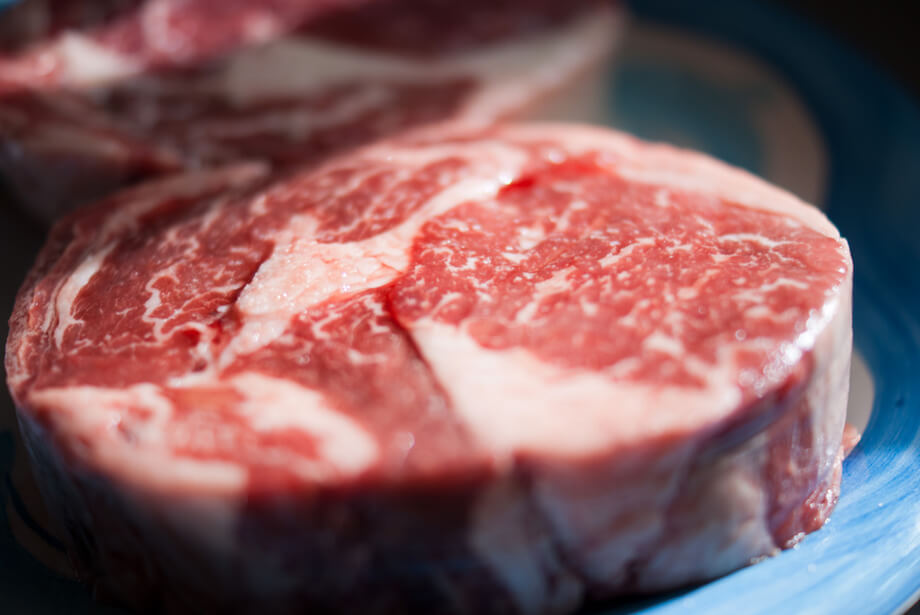
My parents have ended up in a middle ground like this. Even though their daughter is a meat farmer, they buy meat from the grocery store about half the time. Industrial meat is best for dishes that will disguise the lower quality flavor, like casserole and pasta sauce.
If you are budgeting, save your money for fresh, farm quality meat when you want roast chicken or steaks—meals that showcase the flavor of the meat.
Another option—instead of buying the familiar and expensive cuts of meat you’re used to seeing at the store, consider trying some less popular cuts of meat. Farmers sell parts of the animals like trotters, heads, and organs much cheaper than steaks and loins—these can be delicious and nutritious options that won’t break the budget. All it takes is a little courage and creativity.
Meat and Food Safety
Sometimes people ask whether meat from the farm is as safe as meat from the grocery store. The answer is: It is equally safe or safer. There are several factors that go in to the safety of the meat by the time it reaches your plate.
The first place diseases start in animals is on the farm in the living animal. Many pathogens that make humans sick, like salmonella, e-coli and trichinosis, live in the bodies of healthy animals.
All farm animals carry some diseases, so the important measurement is “pathogen load”—how heavy is the contamination. The good news is that animals on a small farm aren’t going to have a higher pathogen load than their industrial counterparts. They are likely to have less, because there are fewer animals to incubate diseases, and most farm-raised animals get more exercise and sunlight, which help fight disease.
The next important step in meat safety is a clean slaughter and butchering process. All meat sold by the cut, at the farmer’s market or at the grocery store, is subject to identical safety regulations that are the same all over the country.
USDA inspectors work at all meat packing plants everywhere in the US, including at the smaller custom butchers that small farmers use to sell their meat. If you are buying meat by the share, every state will be slightly different, but state regulations are no less strict, or less strictly enforced.
The last step in having safe meat on the table is your own safe handling and cooking. If you are buying a meat share, it is important to have enough freezer space to store it. Always thaw your meat in the fridge or under cold running water, so the temperature doesn’t rise above 41 degrees F until the cooking process begins.
Chicken and pork should always be cooked thoroughly, no matter whether it comes from, because salmonella and trichinosis are common on all farms, big and small.
Meat on your table from a small farm is just as safe, if not safer, than meat from the grocery store. I am happy to buy meat from farmers that I don’t know personally, once I’ve asked some informed questions. The bottom line is that all meat that is legally purchased in the US is all about equally safe to eat.
Making The Choice To Eat Farm-Raised Meat
When I first started eating meat grown by people I knew, I became fanatical about quality meat. I had a huge shouting match with my mother one year at Thanksgiving about whether we were buying a turkey from the grocery store or from a local farm.
My parents, both children of Depression-era families, and cautious with money, hated the cost. Farm-raised meat is so expensive, they complained. Well, you eat too much of it, responded I, the young environmentalist.
But the truth is that every bit of change counts. Buying meat direct from a farm is not only a big line-item in your budget, but a shift of lifestyle, time, and convenience. You don’t have to do it every day for it to make a difference to the farmer, or to your own health.

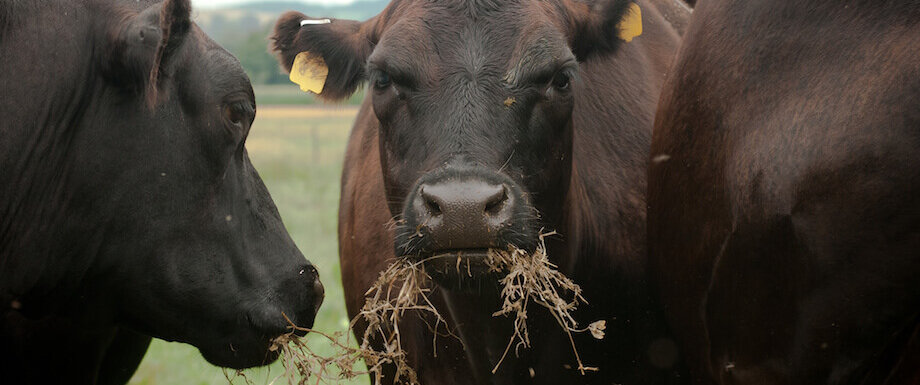


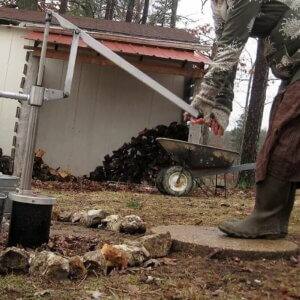





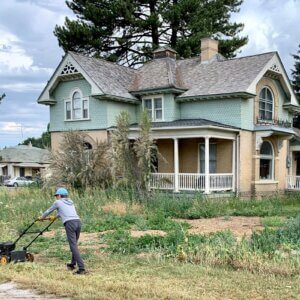


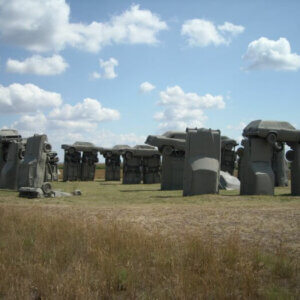

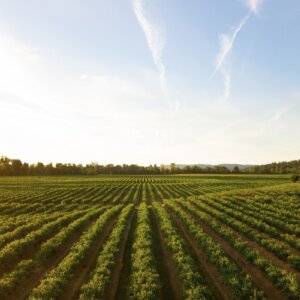
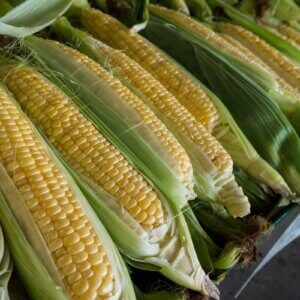
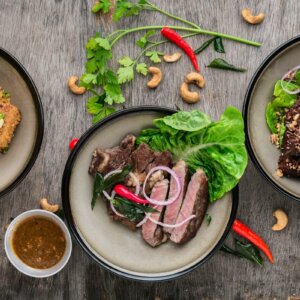






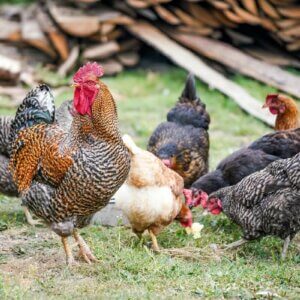


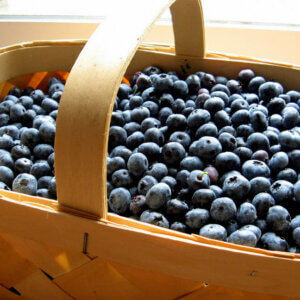





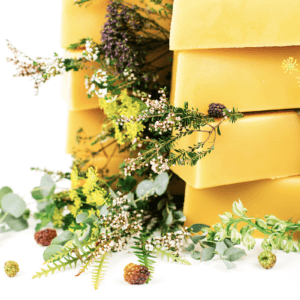

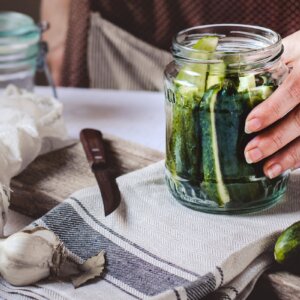
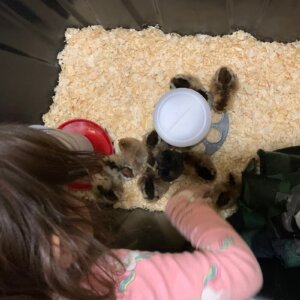
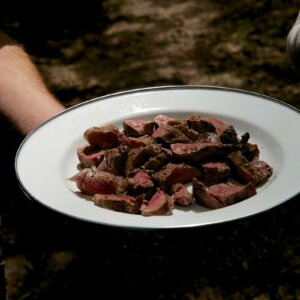


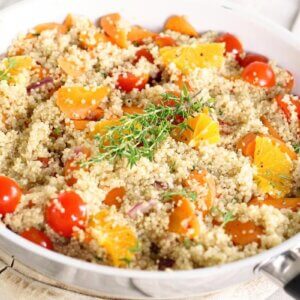

This was extremely useful and something we’re seriously considering. I’m a hunter so I value meat in which I know where it comes from. I guess since I live in an urban area it just didn’t occur to me to look into farm fresh items. But, I now feel confident in how to buy direct from farmers. Now I just gotta get to work and find a farmer to trust! Thank you!
Where is a good farm raised pig ,cow and chicken farm that I can purchase true old time farm raised like my grandparents did somewhere new Chicago or Indiana my husband is a butcher so there’s that ( smiles ) Thank you I cant eat the meat that has all those antibiotics in them Makes me very ill… grass grown
Photo/Attachment:
Interesting and informative. I feel more informed and less uneasy about buying meat from a farmer.
Loved to read your insight and views on direct farm purchases. As a small farm in Virginia we appreciate more people seeing the benefits of buying from the farm and giving the control back to local farms to be able to bring the best options to their local markets. Thanks. – Chelsie GrazeUpFarm.com
We did buy a half of beef from a local ranch ! It was grass fed. I’m sorry bro say it’s some of the toughest meat I’ve ever had!! When we went to the ranch to pick it up at their butcher facility, they couldn’t find our order. It was a preset appointment. No reason for the fumbling through several orders with names on the boxes, ours didn’t seem to be there. When they finally loaded the beef it seemed to be what ever they could grab!
Thank you for the information. We are a startup beef farm. We are considering selling shares of our cows so people can buy local grass fed beef. You have raised a lot of good points and questions that I will need to answer while attempting to implement our dream. If anyone wants to check us out our site is http://www.topstockcattle.com
Pros and Cons with no BS (not interested in the cost of that) to muddy the message. You know where we need that practice restarted. Anyway great information. A lot to consider. Do the butchers sale the banes and head. Gross but I see a lot of wilderness cooks work with these parts too.